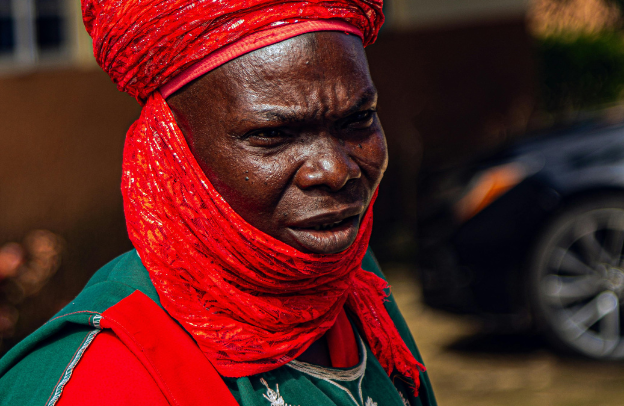Empowering the Diaspora: How Cultural Tourism Fosters Connection and Belonging

When 28-year-old Michelle James first walked through the gates of Elmina Castle in Ghana, she wasn’t just stepping into a historical landmark; she was walking into a story buried deep in her family’s past. A descendant of enslaved Africans in the Caribbean, James had long felt a disconnection from her heritage. The sights, sounds, and spiritual gravity of the former slave dungeon provided a visceral experience no textbook could replicate. “It was overwhelming,” she said. “But for the first time in my life, I felt like I understood a piece of myself.”
Learn How to Leverage Your Story through our Story To Asset Framework.
James’s story is not unique. Across the globe, members of the African diaspora, dispersed through centuries of forced migration and displacement, are turning to cultural travel as a path to rediscovery.
Far from mere sightseeing, this emerging form of travel is proving to be a powerful mechanism for healing, identity reclamation, and intergenerational connection. As heritage-based travel grows in popularity and depth, so too does its impact on memory preservation and diasporic belonging.
See also Building Cultural Understanding: How African Diasporans Can Participate in Africa’s Rich Traditions
Reclaiming the Narrative: A Journey Rooted in History
The African diaspora encompasses more than 140 million people worldwide, according to the African Union. From African Americans in the United States to Afro-Brazilians, Afro-Caribbeans, and Afro-Europeans, these communities share a common thread of historical rupture, one that often left cultural identities fractured or erased. Cultural travel, particularly “roots travel,” is emerging as a vital tool for reconciling the past and rebuilding cultural bridges.
Unlike traditional travel, cultural travel is deeply intentional. It centers on engaging with local traditions, heritage sites, spiritual practices, and indigenous communities in ways that illuminate ancestral connections. For diasporans, this kind of travel isn’t just about learning African history; it’s about becoming part of it.
This movement gained mainstream momentum in 2019 with Ghana’s Year of Return campaign, which marked 400 years since the first enslaved Africans were brought to Virginia. Over one million tourists, primarily from the U.S., visited Ghana that year, contributing more than $1.9 billion to the economy, according to the Ghana Tourism Authority (GTA). Beyond the economic impact, the campaign catalyzed emotional homecomings, naming ceremonies, and dialogues around Pan-African unity.
See also: Cultural Tourism as a Path to Healing: Reclaiming the Sacred Bond Between the Diaspora and the Motherland
Tourism as a Tool for Memory Building
At its core, cultural travel serves as an active form of memory preservation. For diasporans disconnected from language, land, and lineage, these journeys offer a chance to piece together the mosaic of their identity. Visiting ancestral regions, participating in traditional rituals, or even attending cultural festivals becomes a form of embodied memory.
Scholars like Dr. Cheryl Finley, author of Committed to Memory: The Art of the Slave Ship Icon, describe this as “rituals of return.” In her work, she outlines how cultural pilgrimages to historical slave sites create a “counter-archive”—a space where suppressed histories can be remembered, honored, and made visible outside of colonial narratives.
Such memory-building initiatives are also being institutionalized. The Slave Route Project, established by UNESCO in 1994, has cataloged over 300 heritage sites linked to the transatlantic slave trade. These include the House of Slaves in Senegal, the slave forts in Ghana, and the markets in Benin, all of which are now integrated into cultural travel itineraries designed to educate and reconnect.
Community Empowerment Through Engagement
The benefits of cultural travel are not limited to the traveler. When ethically executed, these experiences generate a significant positive impact for local communities across Africa and the Caribbean. Many cultural travel initiatives employ local guides, artisans, and elders who share oral histories, perform ceremonies, and create crafts rooted in tradition.
Take, for example, the Eco-Cultural Tours program in Benin, which partners with local Vodun priests and historians to facilitate respectful tours of sacred sites. Or the Asa Baako Festival in Ghana, which blends music, local storytelling, and eco-travel to celebrate African identity. These programs ensure that the benefits of travel are equitably distributed, while also preserving intangible heritage like language, dance, and belief systems.
That is at the heart of The Diaspora Tourism Experience (DTE) as more than just a travel initiative but a movement to reconnect the African diaspora with the untold chapters of their ancestral narrative.
Additionally, some diasporans return not only as tourists but as investors. The post-Year of Return period has seen increased property investment, the establishment of creative hubs, and the launch of social enterprises by diaspora Africans. Such engagements help shift the dynamic from consumer to co-creator.
Healing Intergenerational Trauma
Cultural travel is not always a joyful homecoming. For many, it surfaces generational pain. Sites like Goree Island in Senegal or Cape Coast Castle in Ghana are somber reminders of captivity, violence, and loss. Yet, in these spaces of historical trauma, many diasporans find an opportunity for healing.
Psychologists have documented the therapeutic effects of revisiting ancestral homelands. A 2021 study in the Journal of Black Psychology found that diasporans who engaged in cultural heritage travel reported reduced internalized racism and increased self-esteem. The act of acknowledging ancestral suffering, while connecting with current communities, can be deeply restorative.
Organizations like Diaspora Rising and Healing Through Heritage have built retreats around this idea. These programs blend historical education with spiritual practices, including libations, drumming circles, and reflective journaling. “It’s about bearing witness,” says founder Rachel Garraway. “You’re standing where your ancestors stood. That shifts something in you.”
Challenges and Ethics of Cultural Tourism
While cultural travel has transformative potential, it is not without challenges. There are growing concerns around cultural commodification, shallow engagement, and the reproduction of poverty travel. Some critics argue that diasporans seeking “authenticity” may unintentionally exoticize or romanticize African cultures without understanding local complexities.
To address this, experts advocate for ethical travel practices that prioritize community consent, fair compensation, and deep cultural immersion. The Code of Ethics for Responsible Tourism in Africa, developed by the African Tourism Board, encourages travelers to approach these journeys with humility, respect, and a commitment to learning.
In an interview with the BBC, Nigerian travel expert Funmi Oyatogun emphasized, “It’s not about ticking off historical sites. It’s about listening, building relationships, and being part of the larger narrative.”
The Digital Evolution of Cultural Tourism
Technology is also reshaping how diasporans engage in cultural travel. Virtual tours, 3D heritage sites, and interactive storytelling are expanding access for those unable to travel.
These digital spaces not only democratize access but also serve as educational tools for diaspora youth. Schools and universities across the diaspora are beginning to integrate virtual heritage experiences into curricula, fostering early connections to African history and identity.
Moreover, social media has become a vital part of cultural travel. Diasporans share reflections, photos, and ancestral discoveries on platforms like Instagram and TikTok, turning personal journeys into communal ones. Hashtags like #BackToAfrica or #DiasporaTravel have built global networks of travelers exchanging tips, insights, and solidarity.
Toward a Future of Intentional Travel
As the world becomes increasingly interconnected, the African diaspora is poised to reshape the global travel landscape. According to the World Tourism Organization, cultural travel now accounts for 40% of global travel, and African destinations are among the fastest-growing. This presents both an opportunity and a responsibility.
Governments, private sectors, and diaspora organizations must work together to ensure that cultural travel initiatives are sustainable, inclusive, and led by those closest to the culture. Programs must go beyond sightseeing to include community workshops, history seminars, language classes, and traditional arts training.
In places like Jamaica, Senegal, and Ethiopia, pilot programs are already doing this, offering immersive residencies for diaspora artists, youth exchanges, and spiritual pilgrimages that are rooted in both historical knowledge and contemporary collaboration.
You might also like Shaping a Collaborative Vision for Future Generations through the Role of Group Tourism
Conclusion: Coming Home to the Self
For centuries, the African diaspora has been defined by displacement, erasure, and yearning. But through cultural travel, that narrative is being rewritten; not as one of exile, but of return. As diasporans walk the streets of Accra, attend ceremonies in Ouidah, or drum on Caribbean beaches, they are not just visitors. They are custodians of memory, weavers of heritage, and architects of belonging.
Cultural travel is more than a passport stamp or a picturesque selfie. It is a spiritual act, a political statement, and a deeply personal journey. And as more members of the diaspora reclaim their place in the global African story, the map of memory grows ever fuller; one journey at a time.
Learn How to Leverage Your Story through our Story To Asset Framework.





